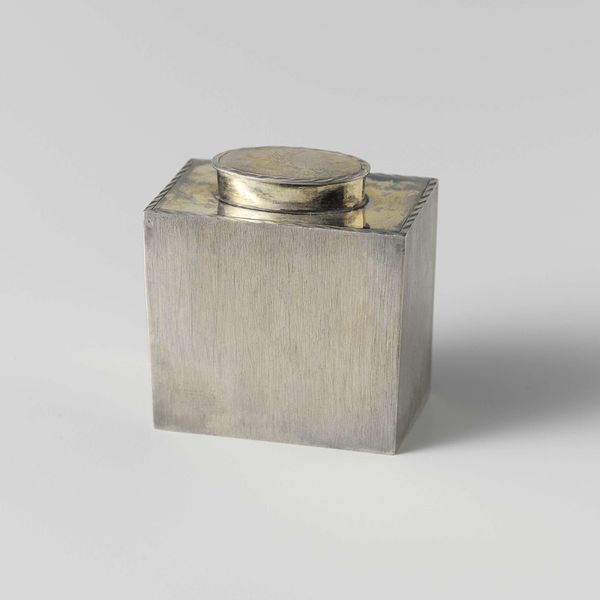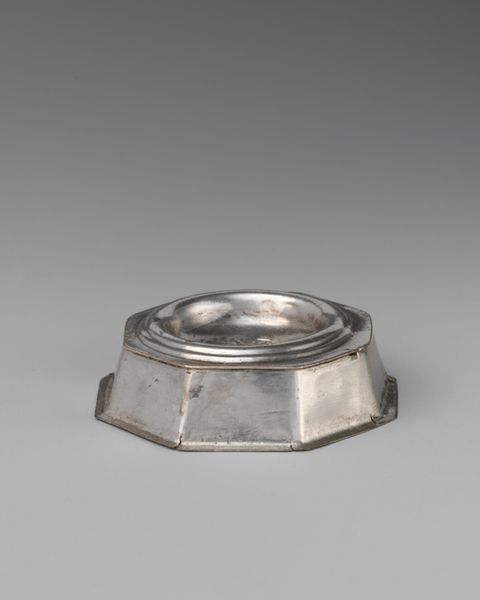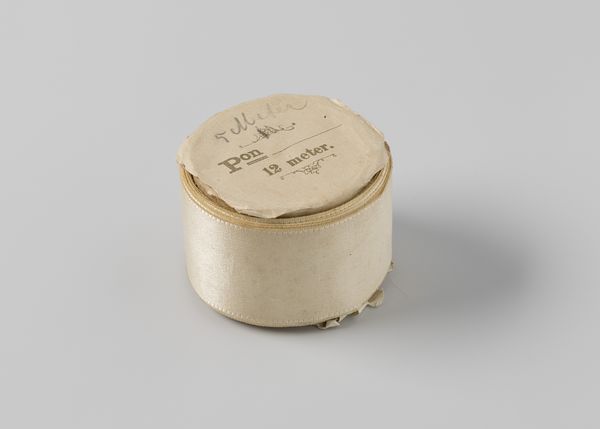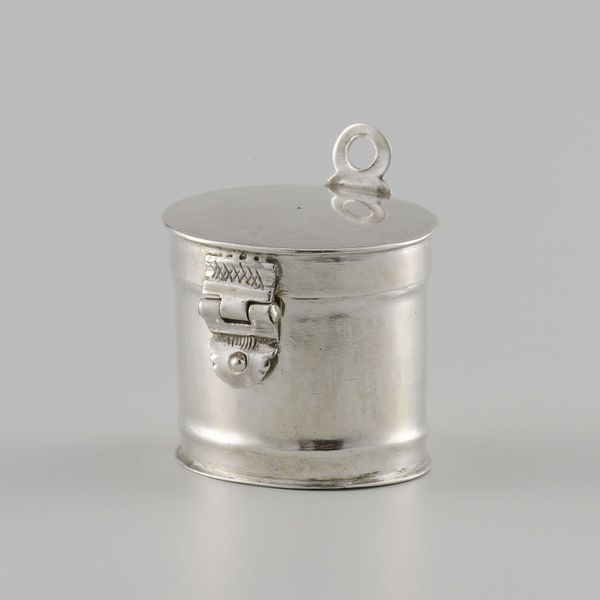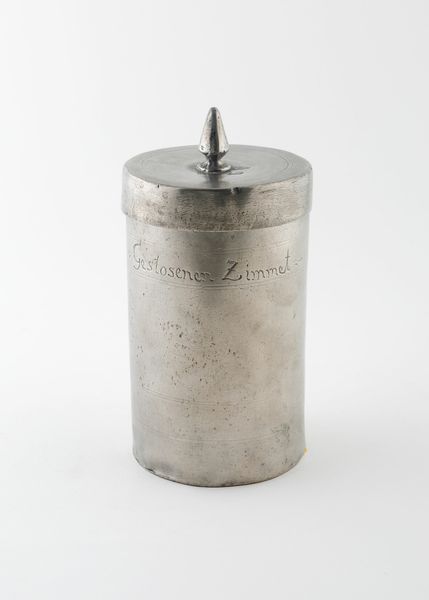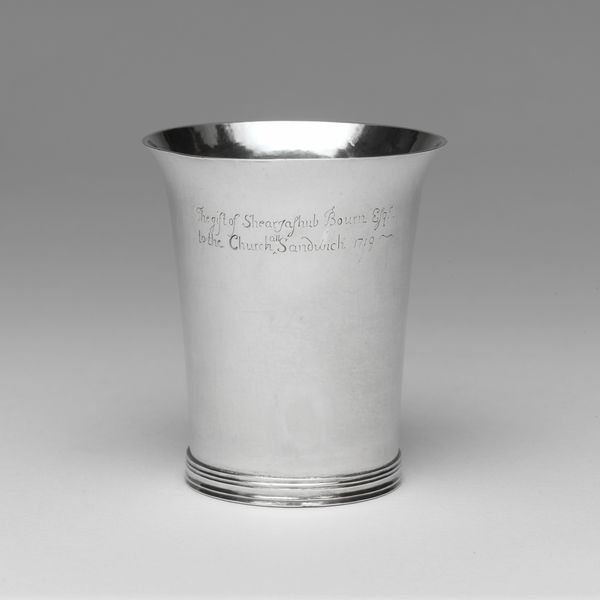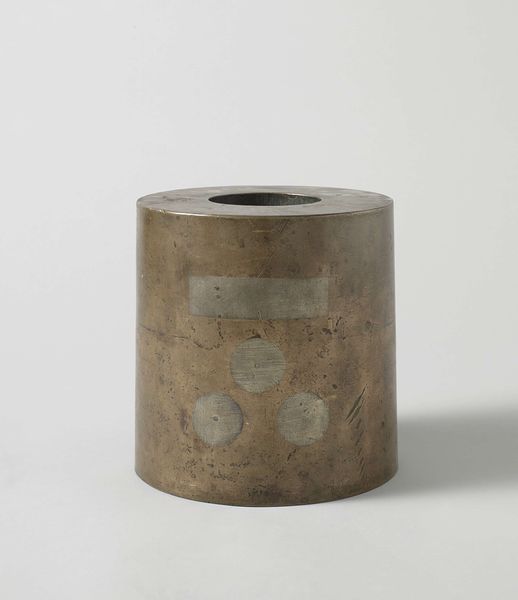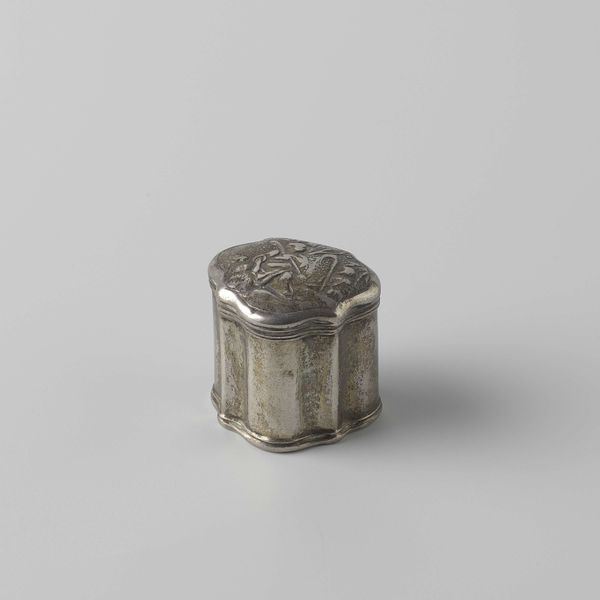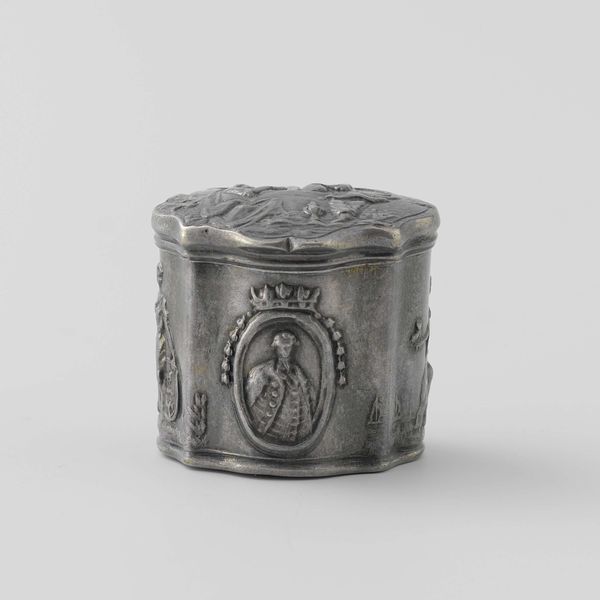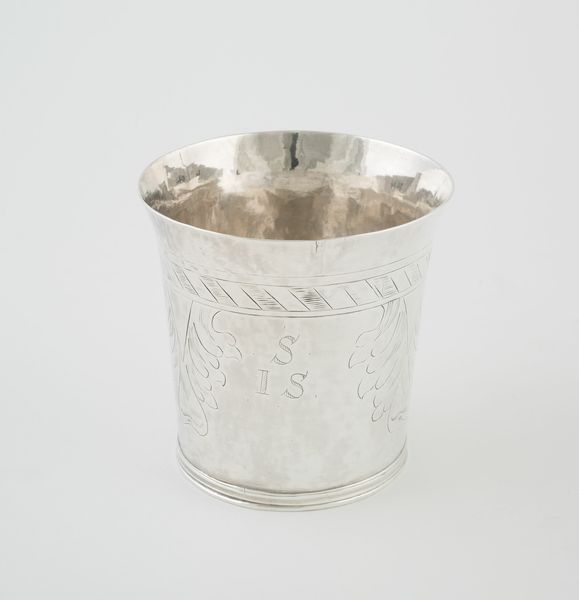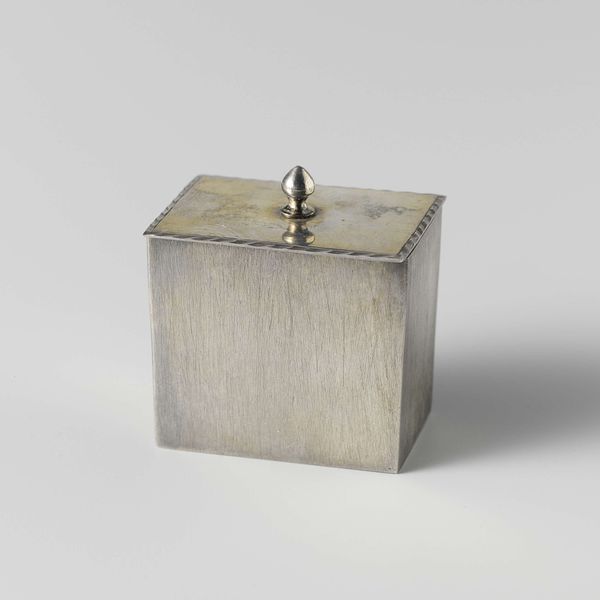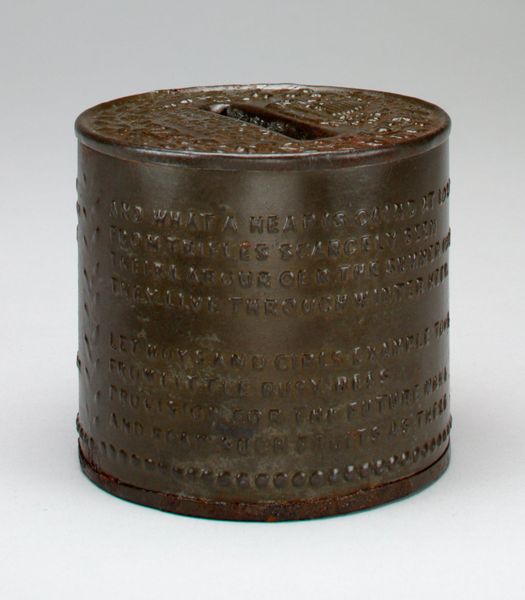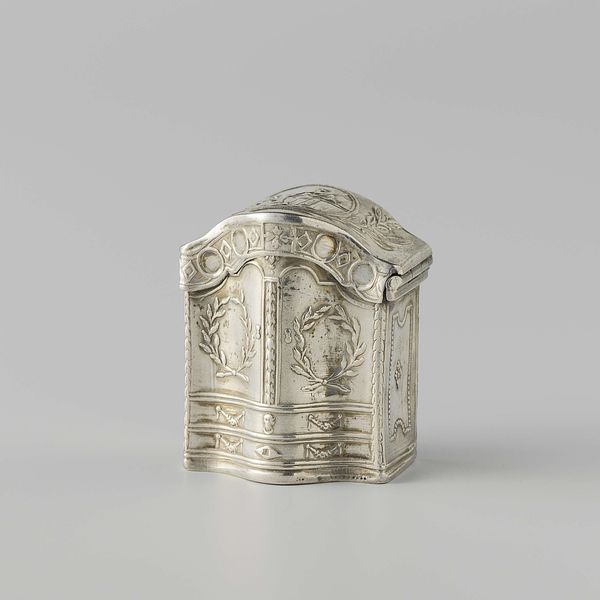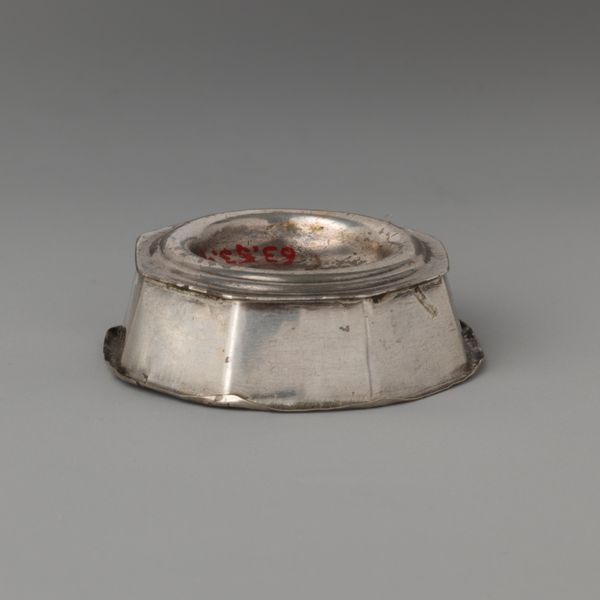
assemblage, readymade, photography
#
still-life-photography
#
fluxus
#
conceptual-art
#
assemblage
#
readymade
#
photography
#
neo-dada
Copyright: Alison Knowles,Fair Use
Editor: Alison Knowles' "Bean Rolls" from 1964 presents an interesting assemblage using readymade objects and photography. I find it very subdued. There's this old, seemingly empty tin can… what is there to appreciate? What is the story behind this, and how do you interpret it? Curator: Well, this piece highlights a critical moment in art history where artists started questioning what could be considered "art". By presenting everyday objects like a tin can and labeling it as "art", Knowles, and other Fluxus artists challenged the institutional frameworks that defined art at that time. Note that the label states "by special appointment to Fluxus P." The Fluxus movement was all about collapsing the boundaries between art and life. It really changed the public role of the artist. Editor: So, it's about the statement it makes, rather than its aesthetic appeal? Curator: Precisely. Consider the time: this was during a period of immense social and political upheaval. Artists used art to react to what was happening in culture and society. Do you see this can as critical of consumer culture, for example? Editor: I do now! It looks like commentary, since the labeling seems to promise so much while the can itself is empty. How revolutionary to make the viewer consider these issues in a museum setting. Curator: Exactly. Its "revolutionariness," as you put it, derives from actively trying to subvert the commercialization of the art world. The question becomes, does something gain artistic merit just by being displayed within the hallowed walls of a gallery? Editor: I see. By simply presenting a common object, the work really challenges how museums themselves assign value and meaning. Curator: Indeed. And it encourages viewers like us to actively participate in that process, considering what we value, and *why*. Editor: This has really changed my perception! What appeared boring at first glance now reveals deeper insights into art as a form of cultural commentary.
Comments
No comments
Be the first to comment and join the conversation on the ultimate creative platform.
